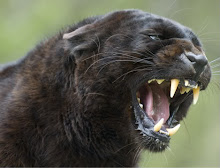

TO BE HONEST, Al Chesley says he doesn't know how much the terrible secret he kept within affected his life.
The former Eagles linebacker won't say it was the root of the alcohol and drug abuse that might have cut short his NFL career.
He doesn't know how much it contributed to his issues with anger management or with authority figures. He doesn't know if it caused him to be a womanizer.
All Chesley knows is that after 37 years of hiding, fearing, feeling ashamed, the last 3 months have started the healing process, and he wants to let others who may be suffering like he had know that help is available.
"I don't know how bad it hurt me," Chesley said of being sexually abused when he was 13 years old. "I self-medicated myself with illegal drugs and alcohol. I was into womanizing and had anger problems.
"I don't know how much it contributed to those things, but it could have played a big part. I'm not crying the victim. I was a victim then, but now I'm a survivor.
"All I want to do now is set an alarm, to help other people out there who are going through what I did. You don't have to suffer."
Chesley, 50, was in Wilmington yesterday along with members of the Survivors Network of those Abused by Priests to encourage law-enforcement officials to extend their support and encouragement to victims of pedophilia.
It was the first time Chesley, who played 3 1/2 seasons for the Eagles and was a member of the 1980 Super Bowl team, has spoken in a large public setting about the abuse he suffered.
He said when he was 13, a Washington police officer he thought was his friend coaxed him into his apartment and performed oral sex on him.
"I hadn't had any sexual experience prior to that," Chesley said. "He stole some of my innocence. I always knew something was wrong with that incident but I was never able to talk about it."
Chesley said he kept this secret for 37 years, in part because he didn't want his parents to find out.
"I did not want to embarrass them," Chesley said of his parents, who are deceased. "That was probably a warped way to look at things, but I was still thinking I did something wrong. I was just 13 years old.
"As I look back now, my parents would have loved me more and been very supportive of me if I told them."
Paul Livingston, who is the San Diego director of SNAP, said Chesley's story is not uncommon. Livingston, who said a janitor at his school sexually abused him when he was 7, said pedophiles count on their victims being too ashamed or afraid to speak out.
"These predators are vicious and vindictive," Livingston said. "They groom us, threaten us not to speak out. We end up blaming ourselves our whole lives."
Playing at 6-3, 240 pounds, Chesley had the invincible physique of a modern-day gladiator, but it was only window dressing for the child suffering inside.
"I was a big, strong football player, but inside I was still the little boy who was hurting," he said. "I was carrying this deep, dark secret."
Chesley said he first started thinking about telling his story to someone about 3 years ago.
He was watching the "Oprah Winfrey Show" when New York Jets wide receiver Laveranues Coles told his story of being sexually abused for 3 years by the man who would become his stepfather.
"I didn't have the courage to come out at all, let alone on television in front of millions of people," Chesley said. "But to hear [Coles'] story was huge. He seemed so free. I could sense how free he was.
"I knew from that moment on, I had to get real with myself."
But it took more time, and then about 3 months ago he went to a support group meeting, where he met Livingston. The two talked afterward, and Chesley knew he had found what he needed.
"It just went from there," he said. "I'm a much healthier person. I'm 50 and working on the second half of my life.
"I wish I would have had the courage to talk about this 20, 10, 5 years ago. I don't know how many people I may have been able to help."
And helping others is all Chesley wants to do now by sharing his story, delivering information and encouraging victims to get the help that is available.
"You don't have to suffer," he said. "I was an unhealthy person to keep it in as long as I did.
"I don't want children to get tricked and to succumb to what I did. And if it's already happened to them, they need to tell someone about that person.
"You didn't do anything wrong. You were the victim and there are avenues for you to get help." *
Send e-mail to
smallwj@phillynews.com.


No comments:
Post a Comment